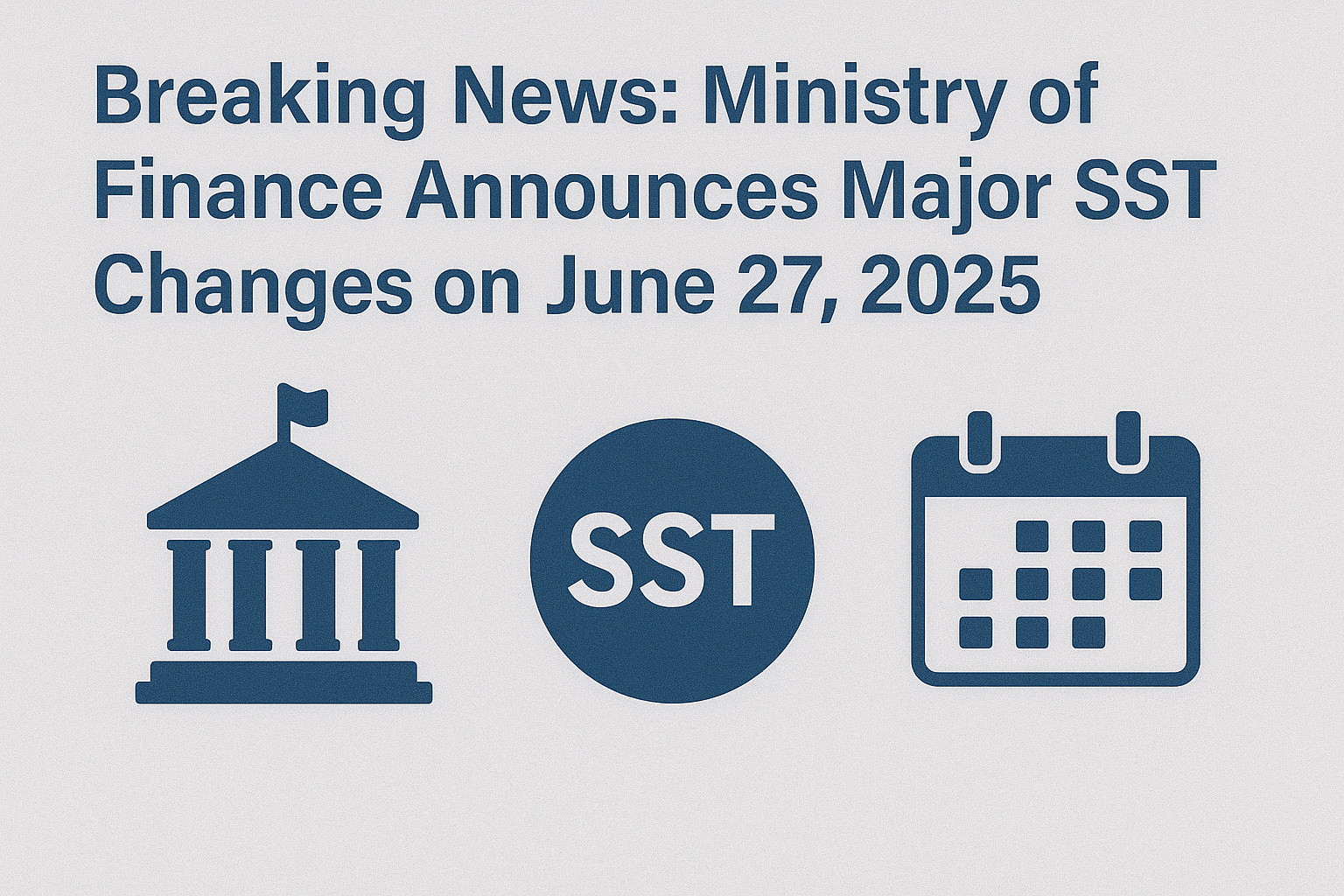In a significant development for Malaysian businesses, the Ministry of Finance today, on June 27, 2025, released a press statement detailing a major review of the Sales and Service Tax (SST) framework. The announcement introduces new sales tax exemptions on essential goods, a substantial increase in the service tax threshold for specific industries, and a complete withdrawal of the service tax on beauty services.
These changes, which come as a mid-year review, are seen as a move by the government to address the rising cost of living and to ease the compliance burden on Micro, Small, and Medium Enterprises (MSMEs). This article will break down each of these key changes and explain what they mean for your business.
1. New Sales Tax Exemptions on Food Items
In a move aimed at lowering costs for consumers and F&B businesses, a range of food items are now newly exempted from sales tax.
- Imported Fruits: Key imported fruits including apples, oranges, mandarins, and dates are no longer subject to sales tax.
- Essential Goods: Both locally produced and imported essential food items such as rice, meat, chicken, vegetables, and eggs are now sales tax exempt.
- Processed Foods: Various processed food items, including popular staples like sardines, flour, and other canned foods, in frozen, chilled, or fresh forms, have also been exempted.
Impact: This is welcome news for businesses in the food and beverage sector, as it should help to reduce their cost of goods.
2. Service Tax Threshold Increased to RM1 Million for Key Sectors
This is one of the most significant changes for service providers. The annual registration threshold for Service Tax for two major sectors has been doubled.
- Affected Services: Leasing or rental services, and financial services.
- New Threshold: The registration threshold has been increased from RM500,000 to RM1 million.
Impact: This provides significant relief for smaller property landlords, equipment rental companies, and financial service providers. For example, a commercial property owner earning RM800,000 in rental income annually, who previously had to register for and charge 8% SST, is now no longer required to do so. This also applies specifically to MSMEs in the leasing and rental category.
3. Service Tax on Beauty Services Withdrawn
In a complete reversal of previous policy, the government has withdrawn the requirement for service tax on beauty services.
- Affected Businesses: This includes beauty salons, spas, and wellness centers providing facial and body treatments.
- Impact: This is a major win for the beauty and wellness industry. Businesses in this sector are no longer required to register for or charge service tax, which will make their services more price-competitive and significantly reduce their administrative burden.
What Should You Do Now? An Action Plan for Businesses
These changes require immediate review and potential action from business owners.
- For All Businesses: Review your current pricing and SST collection procedures to ensure they align with these new rules. Update your accounting systems accordingly.
- For Landlords & Financial Service Providers: If your annual turnover is between RM500,000 and RM1 million, you may now be eligible to de-register from SST. This is not automatic and requires a formal application to the Royal Malaysian Customs Department (RMCD).
- For Beauty Service Providers: If you have previously registered for SST, you must now apply to have your registration cancelled. You should immediately cease charging service tax on your services.
Navigating Sudden Policy Changes with SMONE
Regulatory changes can be complex, and managing the process of SST registration or de-registration requires careful attention to detail.
At SMONE, we stay on top of the latest updates to provide our clients with timely and accurate advice. We can help you understand how these new SST changes impact your business specifically and guide you through any necessary applications with the authorities.
Contact us today for a professional consultation to ensure your business remains fully compliant and can take full advantage of these new reliefs.
(Disclaimer)
This article is for general informational purposes and is based on a Ministry of Finance press release summary dated June 27, 2025. It does not constitute legal or tax advice. Please consult with a qualified professional for advice tailored to your specific situation.


